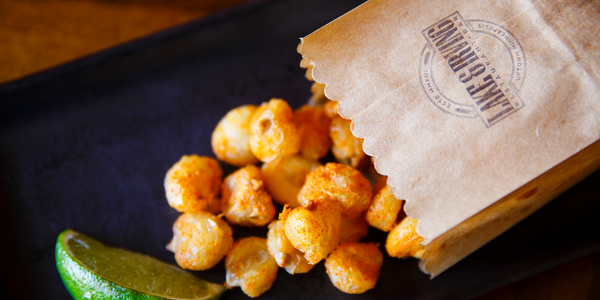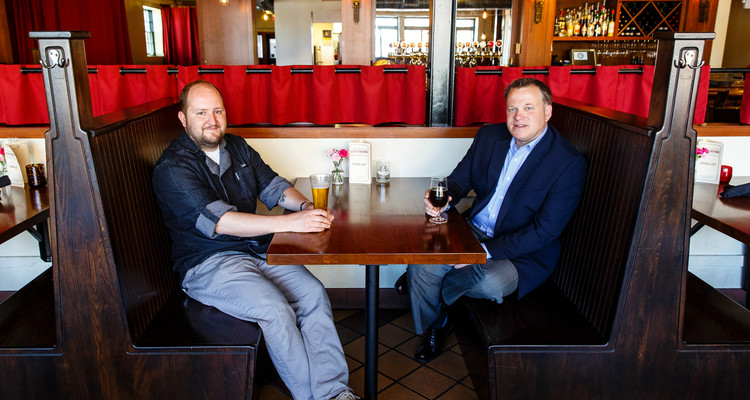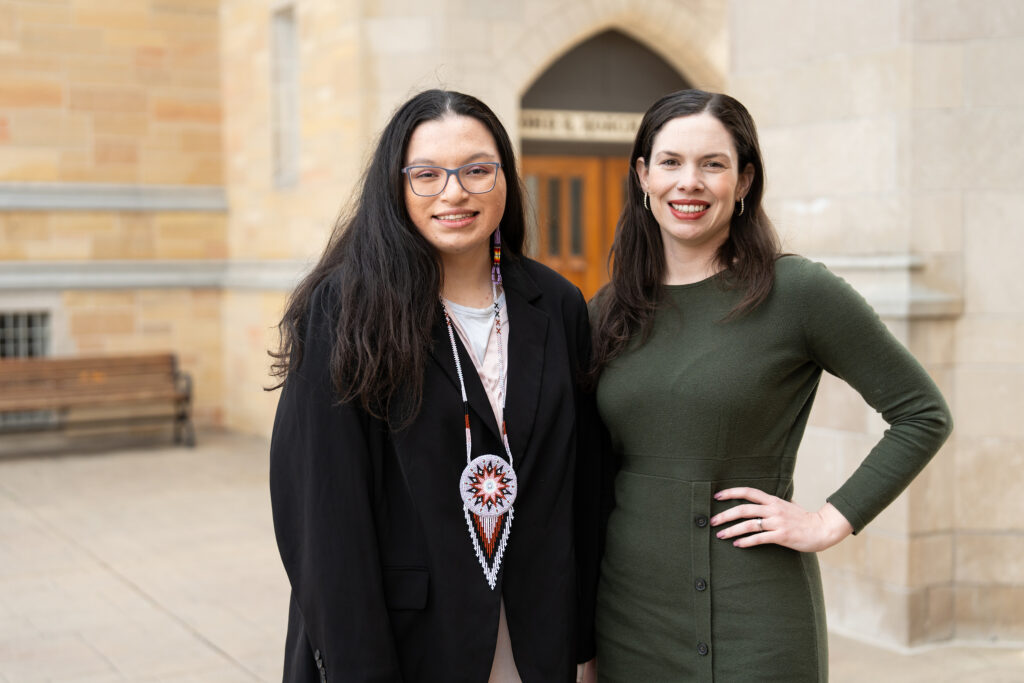Minnesotans love to eat out. According to the National Restaurant Association, there are more than 9,900 restaurants in the state, with revenue for 2016 projected to hit $9.5 billion. But that doesn’t mean that opening a restaurant is a “build it and they will come” scenario. While the rate of failure for restaurants during their first year of business is on par with that for all small businesses – roughly 60 percent – opening a restaurant requires peak investments in capital equipment, people and inventory from the first day of business. Add to that factors that can be out of an owner’s control –food trends or changes to a neighborhood – and running a successful restaurant can become a difficult feat.
Have a Business Plan
Still, the allure of restaurant life proves irresistible for many entrepreneurs, who often get their start in the industry as teenagers and work their way up the ranks. This was the path for Chris Ikeda ‘05, owner of Lake & Irving in Minneapolis. “The only thing I’ve ever done for money is serve people food and drinks,” Ikeda said. “My family bought a Perkins restaurant when I was 14, which eventually became five. I worked my way up from dishwasher to assistant regional manager. While most college-aged kids struggle to find a major, I knew I wanted to major in business and entrepreneurship, and ultimately own my own restaurant.” After graduating from St. Thomas with a degree in entrepreneurship, Ikeda attended the Culinary Institute of America in New York, followed by eight years in Hawaii running a group of restaurants on the Four Seasons property in Kona. After returning to Minnesota, he opened Lake & Irving in 2013.
Ikeda credits his education at St. Thomas for providing a solid foundation for starting his business. “I think the restaurant industry in particular falls victim to chefs who don’t necessarily understand the business side of owning a restaurant,” he said. “My classes at the Schulze School were the most relevant because they helped me understand that success in this industry is about more than creating and cooking good food.”
Reid Sellgren ’98 M.B.A., a former owner of Parella of Minneapolis, also knew from a young age that he wanted to be in the restaurant business. “My first restaurant job was as a wait assistant at a fine dining establishment in high school because I didn’t want to play football my senior year,” he said. “I remember telling my dad that I wanted to go into the business back then and he said, ‘No, you’re not; you’re going to college.’” Sellgren did go on to college and eventually earned his M.B.A., which focused on venture management and marketing. He said this ultimately helped him transform his ambitions into tangible skills. “You have to create a workable business plan,” he said. “It needs to spell out who you are and you need to tie everything back to it. It should serve as a gauge for all activities and spending. I also learned that you have to be able to embrace rapid change and uncertainty. In the early stages, nothing ever goes the way you plan.”

Fried corn nuts are one of the unique appetizers at Lake & Irving Restaurant & Bar in Minneapolis.
But education and previous experience do not guarantee success; something Sellgren learned when Parella closed just seven months after opening. Unlike his previous restaurant ventures, which he describes as burger joints, Parella was much more refined. “Figlio’s, the restaurant that occupied the same corner we moved into in Uptown for many years, was such an iconic restaurant that we believed Italian food was the right fit,” he said. “But it was too high end and it wasn't Uptown comfortable. Parking was also a significant roadblock. There is no free parking and you can spend anywhere from $5 to $11 or more on parking. I know that would impact my decision about where to shop and eat.”
Looking back on his experience, he reflects on how risky the restaurant industry can be. “If you were opening a product design company, you’d begin as the only employee and you might have a computer, a cell phone and a desk at home,” he said. “As you grow, you can scale. With a restaurant, on the very first day you have to be heavily invested. Even if the concept doesn’t work you still have all these fixed and variable costs that don't go away. If you start cutting labor aggressively, it’s the guest experience that suffers and, ultimately, they stop returning.”
Start Small and Be Approachable
Ikeda, who has plans to expand his business into catering, agrees that there is no specific formula or algorithm for success in the restaurant business. “We define Lake & Irving as a neighborhood restaurant serving American food with global flavors,” he said. “We call our service style 'professional but casual’ and there is an intentional lack of pretentiousness that we think fits with our environment.” He went on to credit their early decision to earn the support of their Calhoun-Isles neighbors and to consistently satisfy their primary market. “Keeping dining approachable is very key,” Ikeda said. “In today’s marketplace, we have a more informed consumer who recognizes the importance of value. Uptown is a very unique market, but ultimately, consistent food and service makes people repeat diners.”
As for Sellgren, who recently put his restaurant dreams on hold when he accepted a position as director of sales for content and digital solutions at Touchpoint Media, he anticipates a time in the future when he’ll be able to put his background to work developing and scaling new businesses. “My advice for new restaurateurs would be to start very small,” he said. “Bootstrap all of your expenses, especially capital equipment. Buy that used range (even if it isn't the ‘have-to-have’ French cooktop). Save yourself $15K and, once you have momentum, re-evaluate your equipment needs. Never underestimate the importance of planning. Your business plan will change over time but it will keep you honest and accountable. You can’t let ego and emotion run the show.”







